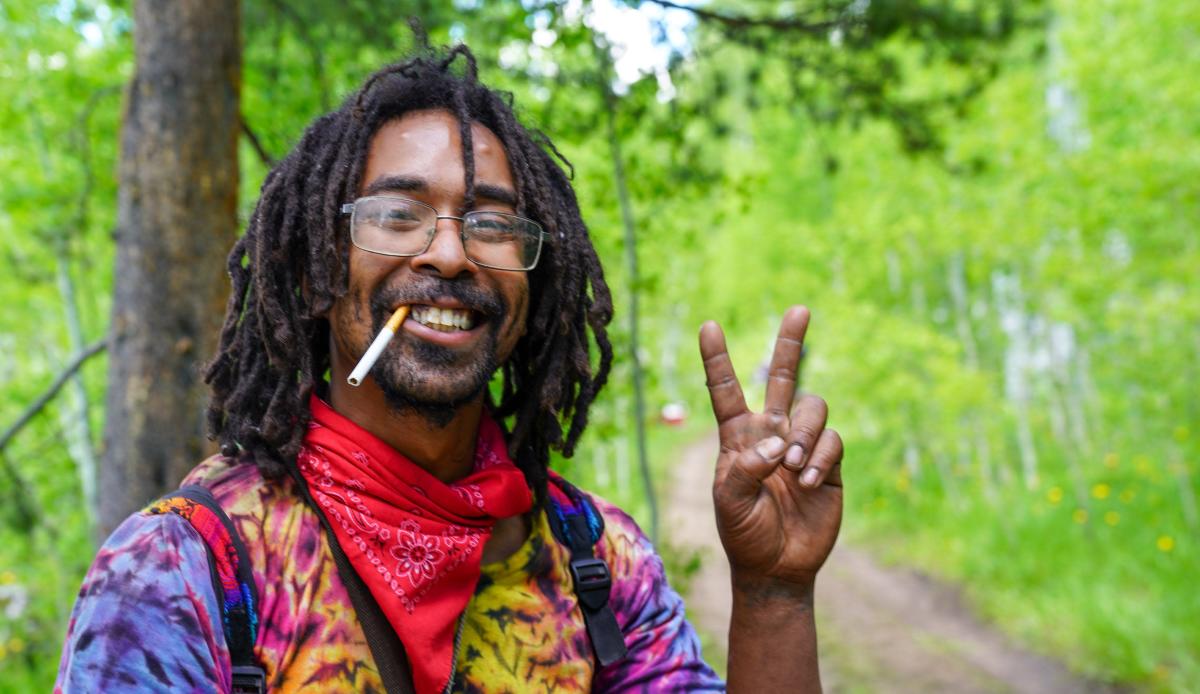HAYDEN, Col. – Erik Childress crouched down along the footpath that wound deep into the woods and stuffed a cigarette between his lips.
A steady stream of bare feet made its way past the tie-dye-clad Childress, 30, and his red wheelbarrow full of onions, water, and gasoline. His chest was still heaving with the effort to push supplies up the bumpy trail. Childless looked up at a passing woman, a blanket and tent draped over her shoulders.
“Welcome home,” he said with a smile, showing a peace sign.
Under the watchful eye of local residents and officials, as many as 10,000 self-proclaimed hippies and counterculture folks like Childress flock to this remote area of northern Colorado for the 50th anniversary of the Rainbow Family of Living Light’s fourth-place finish. held. weekend of July.
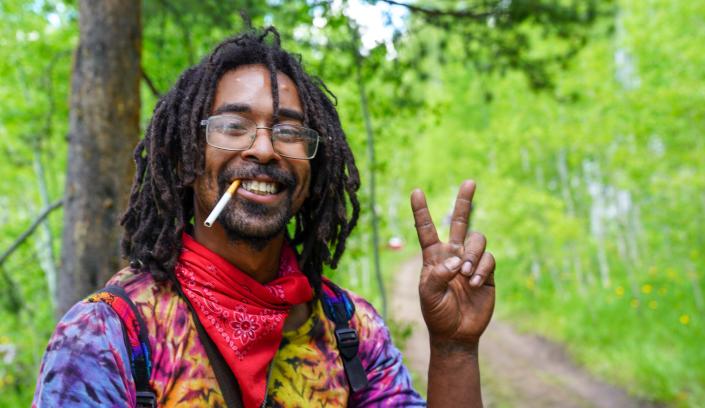
Founded in part by veterans struggling with alcoholism, drug addiction, and what is now recognized as post-traumatic stress disorder, the group held its first organized camp in Colorado in 1972. Participants feast, pray for world peace and celebrate their collective humanity in an event that shares similarities with Grateful Dead concerts, Woodstock and Burning Man.
The leaderless group meets annually to camp on public lands across the country, and for generations it has clashed with law enforcement over drug use, sanitation and damage to forests. Previous national campouts, held in Arkansas, Texas, Vermont and Michigan, have drawn up to 20,000 participants. About 3,400 in attendance, including dozens of children, had arrived by Friday morning, according to federal officials.
Dozens of police officers monitor the rally in the Routt National Forest and have already kicked participants out of a lake where they were bathing, warned of open campfires and stray dogs, and inspected the vans, buses and derelict cars that came down the long road. dirt road to the meeting.
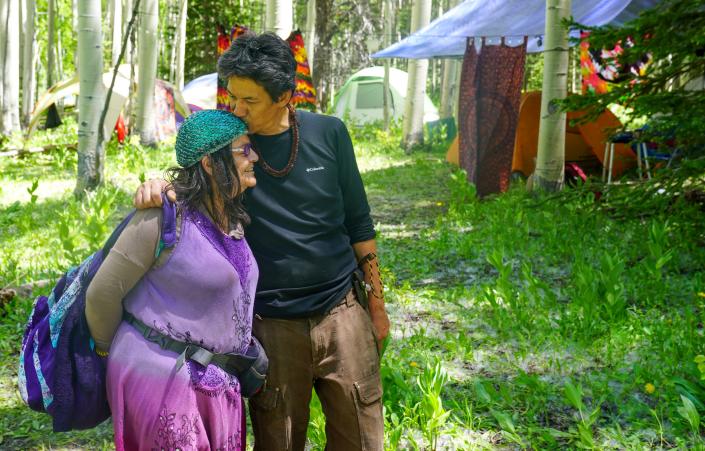
Rangers typically hand out hundreds of tickets at each meeting, held last year outside Taos, New Mexico, about 70 miles north of Santa Fe. Normally, the Forest Service requires large groups to be licensed, but the Rainbows refuse to participate in that process, citing their First Amendment right to congregate without government approval.
While the group does not claim leaders, participants volunteer to do the work necessary to make the gatherings a success, from tapping mountain springs for drinking water to digging latrines and bringing in communal kitchens. Their camp for the week is over a mile away from the parking lot, so participants should bring everything they need for their stay.
Barry “Plunker” Adams is a founding member of the group, turning 77 days before the event started. After a walk in the shade, Adams sang a nearly five-minute song about the group’s origins, explaining how he needed a new way to interact with modern society after leaving the Navy after the war in vietnam.
“It saved us. Instead of killing people, we were taking care of people,” he said. “That’s how we tried to heal each other.”
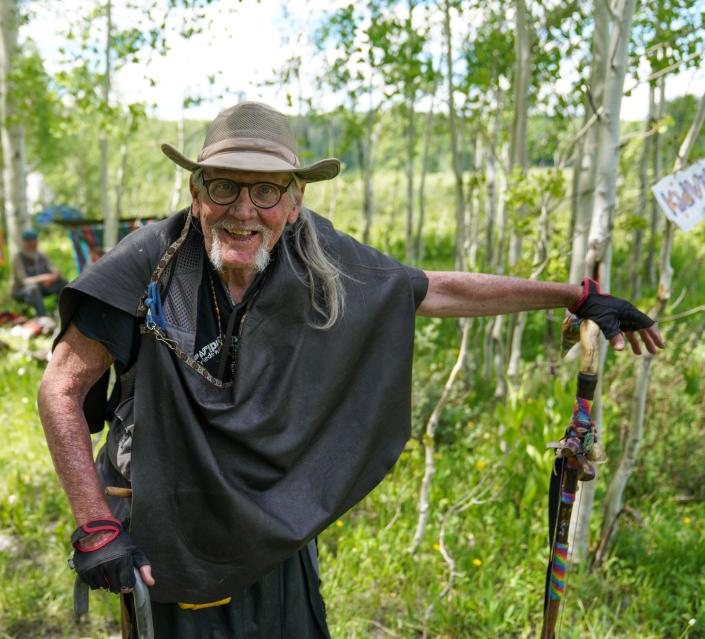
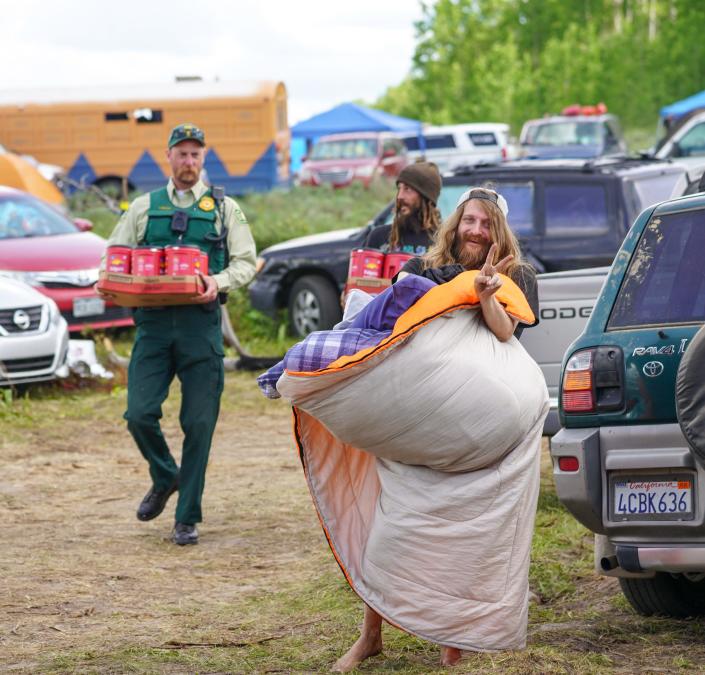
Adams has attended most of the national rallies since the first, though he said he had to hide on the fringe for several years to avoid law enforcement officers who mistakenly believed he was in charge.
“We do it in peace and try not to harm the earth, and everyone gets to feel their individual sovereignty,” he said, leaning against his cane in the shade as mosquitoes buzzed around. “We are not perfect. We are just people.”
Adams called the level of law enforcement this year “not too bad” compared to past experience.
Forest Service officials say they are working with some members of the Rainbow Family to minimize the group’s impact, but they still consider it an illegal gathering. So far, officials say the Forest Service has issued about 100 fines for violations ranging from drugs to land damage. Last year, rangers issued about 600 tickets and made a small number of arrests.
“It’s about protecting health and safety and protecting forest resources,” said Hilary Markin, a spokesperson for the US Forest Service assigned to the 60-member federal team overseeing the meeting.
Markin, who has helped manage several rallies in the past, said rangers are concerned about making sure human waste is properly buried, communal kitchens don’t pollute streams, and any temporary structures built in front of the campout. are built will be removed when the Rainbows leave.
“We ask that forest visitors obey all local, state and federal laws in our enforcement actions,” Markin said.
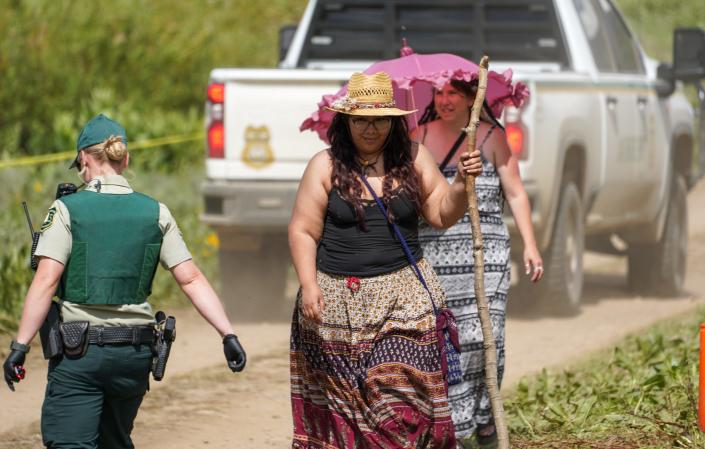
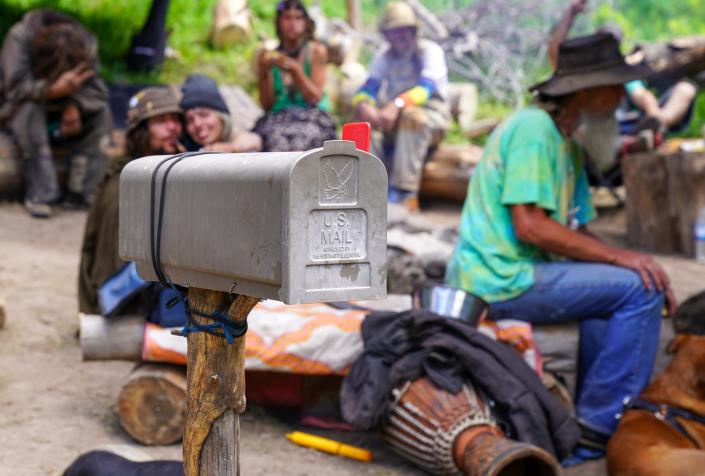
A challenge for this year’s gathering: While marijuana is legal in Colorado, it remains illegal on Forest Service property, and rangers hand out tickets if they catch people using it. An enterprising group of campers set up a mailbox and loaded it with marijuana for strangers to use, claiming that only postal inspectors can open mailboxes without a warrant.
Rangers emphasize that the vast majority of members of the Rainbow Family they interact with are respectful and law-abiding. But many Rainbow members are annoyed by what they see as harassment from law enforcement about minor issues.
Local officials say they are particularly concerned about public safety and health issues, given the rural nature of their county, Routt, which normally only has about 25,000 residents.
County Commissioner Beth Melton said the ambulance closest to the Rainbow meeting would have to drive a three-hour round trip to evacuate anyone — and it’s the only ambulance typically available. Recent rains have clouded some of the dirt roads leading to the campground, making travel even more challenging than usual.
“We have a duty to public health and safety, and this meeting affects that, so we need to be prepared,” Melton said. “This is a significant number of people in a very remote area of our province. God forbid there is an E. coli outbreak.”
Back in the shadows of the burgeoning Kid Village area, Filipe Chavez, an 83-year-old visitor, said he hoped clashes with law enforcement would be minimal this year. Chavez, a retired truck driver, drove his dog Benny from near Gainesville, Florida to Colorado.
He attributes his participation in Rainbow to overcoming the alcoholism that developed during his military service in Vietnam. He said those in attendance just want to be left alone.
Being surrounded by the forest, among people sharing a unique experience, helps him maintain perspective on the world, he said.
“It’s a statement about how you can come together and live together with tolerance and respect,” Chavez said, slapping the bugs. “Even the mosquitoes are here for a reason.”
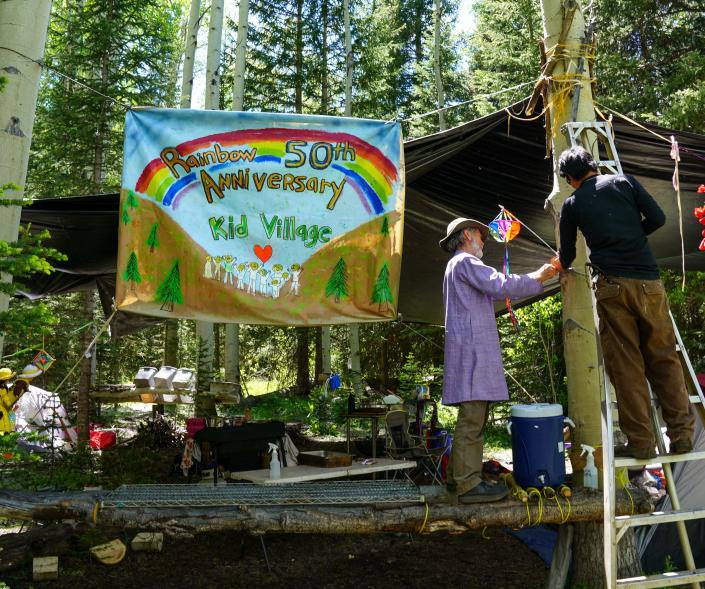
More stories you might like from USA TODAY
This article originally appeared on USA TODAY: 2022 Rainbow Family Gathering Could Bring 10K to Colorado’s Remote Forest
